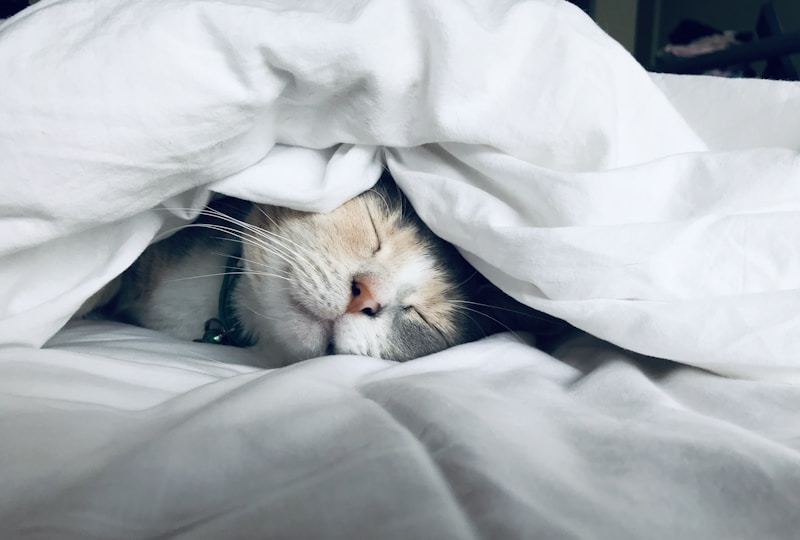The Science Behind Deep Sleep Evening Rituals
Struggling with sleep anxiety and restless nights? Implementing deep sleep evening rituals can revolutionize your rest. Research shows that consistent sleep hygiene practices help combat rising sleep disruptions affecting millions worldwide. These science-backed bedtime routines require no expensive gadgets—just commitment to better sleep health.
This guide reveals proven deep sleep evening rituals to optimize your sleep environment and establish effective bedtime habits that work.
Why Deep Sleep Evening Rituals Matter
Your sleep hygiene directly impacts sleep quality. During rest, your body cycles through stages including REM sleep and restorative deep sleep. Recent studies on BDNF (brain-derived neurotrophic factor)—dubbed the ‘deep sleep molecule’—show how proper deep sleep evening rituals enhance this crucial brain protein for better cognitive function.
Deep sleep is when tissue repair, memory consolidation, and hormone release occur. The Sleep Foundation confirms that 7-9 hours matter, but your evening routine determines quality over quantity.
Establishing consistent deep sleep evening rituals trains your circadian rhythm to recognize bedtime cues, making sleep more natural and restorative.
Essential Deep Sleep Evening Rituals for Better Sleep
Start Your Evening Routine 1-2 Hours Early
The most effective deep sleep evening rituals begin 1-2 hours before sleep. This transition period signals your mind and body to wind down naturally.
Digital Sunset: A Core Evening Ritual
Implementing a digital sunset is crucial for quality rest. Power down devices an hour before bed to prevent blue light from disrupting melatonin—essential for managing sleep anxiety. Using sleep trackers? Check them earlier in your evening routine.
Gentle Movement and Stretching
Gentle stretching or yoga as part of your bedtime routine helps release tension. These calming movements prepare your body for rest.
Mindfulness for Better Sleep
Reading, journaling, or gratitude practices make excellent bedtime habits. They quiet mental chatter and reduce sleep anxiety naturally.
Optimize Your Sleep Environment with Deep Sleep Evening Rituals
Temperature Control
Your optimal sleep environment should stay between 65-68°F (18-20°C). This cooler temperature supports your body’s natural sleep cycle.
Light Management
Darkness is essential for quality rest. Use blackout curtains or eye masks to create the ideal environment that complements your bedtime habits.
Sound Considerations
While some people prefer complete silence, others benefit from consistent background noise like white noise machines or fans. The key is consistency—your sleep environment should sound the same every night.
Comfortable Bedding
Invest in comfortable, breathable bedding materials. Cotton or bamboo sheets, supportive pillows, and a quality mattress appropriate for your sleep position can significantly impact sleep quality.
Common Mistakes That Undermine Deep Sleep Evening Rituals
Variable Sleep Schedules
One of the biggest mistakes is having inconsistent bedtimes and wake times. Your circadian rhythm thrives on consistency, so try to maintain the same schedule even on weekends. Inconsistent timing disrupts the effectiveness of your deep sleep evening rituals.
Evening Caffeine Consumption
Caffeine can remain in your system for 6-8 hours. Avoid coffee, tea, chocolate, and other caffeinated products after 2 PM to prevent sleep interference.
Large Meals Before Bed
Eating heavy meals within 2-3 hours of bedtime can cause discomfort and indigestion that interferes with sleep. If you’re hungry, opt for a light snack containing tryptophan or magnesium.
Exercise Timing
While regular exercise improves sleep quality, vigorous workouts within 3 hours of bedtime can be stimulating and make it harder to fall asleep.
Advanced Sleep Enhancement Strategies
Beyond the fundamental deep sleep evening rituals, recent research reveals additional techniques that can significantly boost your sleep quality. A 2024 study published in the Journal of Sleep Research found that incorporating progressive muscle relaxation into your bedtime routine reduces time to sleep onset by an average of 32%.
The Power of Aromatherapy in Deep Sleep Evening Rituals
Incorporating calming scents like lavender, chamomile, or sandalwood into your deep sleep evening rituals can naturally enhance relaxation. Research demonstrates that lavender essential oil specifically increases slow-wave sleep—the deepest, most restorative sleep phase. Try using a diffuser 30 minutes before bed or adding a few drops to your pillow.
Breath Work Techniques for Better Sleep
Integrating specific breathing exercises into your deep sleep evening rituals activates your parasympathetic nervous system. The 4-7-8 breathing technique—inhale for 4 counts, hold for 7, exhale for 8—has been shown to reduce cortisol levels and prepare your body for deep sleep. Practice this technique for 5-10 minutes as part of your evening wind-down.
Debunking Common Sleep Myths
Myth: Alcohol helps you sleep better. Reality: While alcohol may help you fall asleep faster, it significantly disrupts REM sleep and reduces overall sleep quality. Your deep sleep evening rituals should avoid alcohol within 3-4 hours of bedtime.
Myth: You can catch up on sleep during weekends. Reality: Sleep debt accumulates and cannot be fully repaid. Consistent deep sleep evening rituals every single night are far more effective than irregular sleep patterns.
The Role of Magnesium in Sleep Optimization
Magnesium deficiency affects nearly 50% of adults and directly impacts sleep quality. This essential mineral regulates neurotransmitters that promote relaxation. Consider incorporating magnesium-rich foods like almonds, spinach, or dark chocolate into your evening snacks, or discuss magnesium supplements with your healthcare provider as part of your comprehensive deep sleep evening rituals.
Frequently Asked Questions
Q: How long does it take to establish new deep sleep evening rituals?
A: Consistent deep sleep evening rituals typically take 2-4 weeks to become habits and show measurable improvements in sleep quality.
Q: Can deep sleep evening rituals help with sleep anxiety?
A: Yes! Research shows that structured bedtime routines significantly reduce sleep anxiety by creating predictable patterns that calm the nervous system.
Q: What if my evening routine isn’t working?
A: If you’re awake after 20 minutes, leave bed and do quiet activities. Avoid clock-watching, which increases sleep anxiety.
Q: How do sleep trackers fit into my bedtime routine?
A: Sleep trackers can monitor progress but check data earlier in the day to avoid screen exposure during your evening wind-down. Some couples also explore sleep divorce arrangements for better rest.
Q: Should I nap during the day if I’m tired?
A: Short naps (20-30 minutes) before 3 PM can be beneficial, but longer or later naps may disrupt your deep sleep evening rituals and nighttime sleep quality.
Q: What’s the ideal time to stop drinking water before bed?
A: Stop consuming large amounts of liquids 1-2 hours before bed to minimize nighttime awakenings. Your deep sleep evening rituals should include small sips only if needed.
Q: Can meditation replace other deep sleep evening rituals?
A: While meditation is powerful, it works best combined with other rituals like temperature control, light management, and consistent sleep scheduling for optimal results.
Q: How important is bedroom air quality for sleep?
A: Very important! Poor air quality disrupts sleep cycles. Ensure proper ventilation and consider air purifiers as part of your comprehensive deep sleep evening rituals.
Progressive Muscle Relaxation: A Game-Changing Evening Ritual
One of the most underutilized deep sleep evening rituals is progressive muscle relaxation (PMR). This technique involves systematically tensing and releasing muscle groups from your toes to your head. Studies show PMR reduces cortisol by up to 24% and significantly improves sleep onset. Start with your feet—tense for 5 seconds, then release for 30 seconds. Move progressively upward through your calves, thighs, abdomen, chest, arms, and face. This physical component of your deep sleep evening rituals directly counters the muscle tension associated with sleep anxiety.
The Critical Role of Light Exposure Throughout the Day
Effective deep sleep evening rituals actually begin in the morning. Exposure to bright natural light within 30 minutes of waking helps regulate your circadian rhythm. This morning light exposure sets the stage for melatonin production later in the evening. Research from Stanford University demonstrates that morning light exposure advances your sleep phase, making your deep sleep evening rituals more effective. Aim for 10-30 minutes of outdoor morning light exposure, even on cloudy days.
Common Mistakes That Sabotage Deep Sleep Evening Rituals
Mistake #1: Inconsistent timing. Starting your deep sleep evening rituals at different times each night confuses your circadian rhythm. Solution: Set a consistent “wind-down alarm” 90 minutes before your target bedtime.
Mistake #2: Passive scrolling as “relaxation.” Many people believe watching videos or scrolling social media helps them unwind, but the combination of blue light, stimulating content, and unpredictable information actually increases cortisol. Your deep sleep evening rituals should exclude screens entirely.
Mistake #3: Overheating your bedroom. Many people sleep in rooms that are too warm. Even if you feel comfortable initially, temperatures above 70°F (21°C) can fragment your sleep architecture and reduce deep sleep percentage.
Mistake #4: “Revenge bedtime procrastination.” This phenomenon—delaying sleep to reclaim personal time—undermines all your deep sleep evening rituals. If this resonates, consider whether you need to adjust your daily schedule to include more personal time earlier.
The Tryptophan-Melatonin Connection in Evening Snacks
Strategic nutrition can enhance your deep sleep evening rituals. Tryptophan is an amino acid precursor to serotonin and melatonin. Incorporating tryptophan-rich foods 1-2 hours before bed can support natural melatonin production. Excellent options include turkey, eggs, cheese, pumpkin seeds, and oats. Pair these with complex carbohydrates to facilitate tryptophan absorption. A small bowl of oatmeal with banana or whole-grain toast with almond butter makes an ideal pre-sleep snack that complements your deep sleep evening rituals without causing digestive discomfort.
Start Your Deep Sleep Evening Rituals Tonight
- Commit to consistent deep sleep evening rituals starting at the same time nightly
- Design 60-minute wind-down routines with digital sunset and mindfulness practices
- Perfect your sleep environment: cool temperature, darkness, comfortable bedding
- Implement digital sunset protocols as part of your bedtime habits
- Monitor your sleep hygiene progress with journaling or sleep trackers checked before bedtime
Mastering deep sleep evening rituals transforms not just your nights, but your entire wellbeing. These proven strategies help reduce sleep anxiety while supporting your body’s natural BDNF production and cognitive health.

Begin implementing these deep sleep evening rituals tonight. With consistent practice, you’ll experience the restorative sleep your body craves and deserves.


Leave a Review